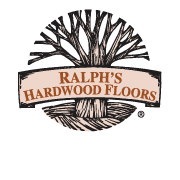Selecting the perfect hardwood flooring is a blend of aesthetics, durability, and character. Among our most coveted species are maple, red cherry, and white oak—a trio with virtues and distinctive looks. We’re here to explore what sets these hardwood giants apart and how they can shape the ambiance of your living spaces.
1. Key Characteristics
Maple: The Bastion of Durability
Maple's primary value proposition is its exceptional durability. Registering a robust 1450 on the Janka hardness scale, it is a more resilient species, especially when pitted against cherry and certain oaks. Prized for its good resistance to decay, maple ensures a long-lasting floor that withstands the rigors of time and traffic.
American Cherry: The Graceful Aging Artist
American cherry, while softer with a Janka rating of 995, is celebrated for its unique aging process. It presents a visually softer floor with warm, rich hues that deepen magnificently over time, imbuing spaces with a luxurious, mature ambiance.
White Oak: The Versatile Performer
White oak, with a Janka hardness rating of 1360, finds a sweet spot between the harder maple and softer cherry. It is a hard-wearing and versatile option suitable for a diversity of interior styles.
2. Appearance
Maple: Understated Elegance
Maple flooring exudes an understated elegance, embodying a lighter look with minimal grain visibility. This uniform coloration lends a clean, modern feel to spaces, making it an ideal backdrop for a wide variety of decor.
American Cherry: Warmth and Depth
In contrast, American cherry boasts a fine grain pattern and initially exhibits a lighter hue that gracefully transitions into richer, deeper tones, providing an inherent warmth and depth to any room it graces.
White Oak: Stately and Strong
White oak features a stately grain pattern and a naturally strong character, often showcasing attractive light to medium brown tones with an olive cast, which appeals to those seeking a floor with a commanding presence.
3. Stain & Refinishing
Maple: A Clear Winner
Due to its density, maple can pose challenges when staining and refinishing. The recommended approach is to embrace its natural color with a clear coat or apply a subtle light stain for added contrast and to highlight its even texture.
American Cherry and White Oak: Stain Friendly
Both cherry and white oak take to staining more easily, allowing for a wider range of customization to suit your taste and complement your home's design narrative.
4. Coloration Over Time
Maple and American Cherry: The Dance of Hues
Maple and cherry both promise an evolutionary visual journey. Maple begins life with pale tones, spruced with hints of pink and gray, but mellows into golden honey over time. Cherry starts lighter and gradually adopts a more pronounced, luscious red-brown patina as years pass.
White Oak: The Timeless Beauty
White oak remains relatively consistent in color, offering a timeless beauty that gracefully handles the passing of years.
Pricing - A Spectrum of Investment
With its durability and consistent appearance, Maple often falls within a medium to high price spectrum. Cherry, known for its beautiful aging process, typically carries a medium price tag due to its softer nature. White oak, widely available and adaptable, spans the pricing range from low to medium, making it accessible for various budgets.
Origin - Global Hardwoods
Maple and cherry predominantly grace the forests of North America, showcasing the continent's rich arboreal heritage. White oak, similarly, finds its roots in the broad expanse of the eastern United States, cementing its status as a well-loved American classic.
When envisioning the hardwood flooring of your dreams, consider the individual character and long-term performance of maple, red cherry, and white oak. Each species holds a distinct personality, ready to partner with your life and style.
Consult with Ralph's Hardwood Floors experts to find the hardwood species that resonates with your aesthetic.















